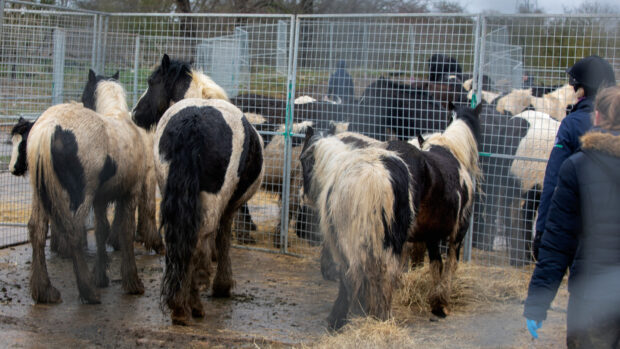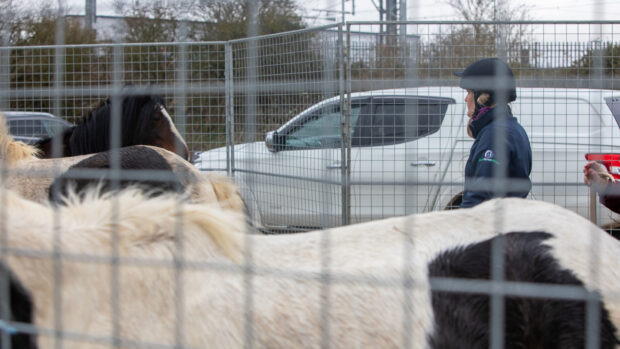“The stars are aligning” for a once-in-a-generation opportunity to bring an end to the long-distance transport of horses to slaughter.
This is the belief of World Horse Welfare, which has launched an appeal in its campaign against the “horrific and unnecessary” journeys endured, still, by some 20,000 horses a year.
Roly Owers, CEO of the charity that was founded nearly 100 years ago by Ada Cole to bring an end to the practice, told H&H the EU is reviewing its animal transport legislation for the first time in 17 years.
“This is the big one,” he said. “This is the opportunity our founder set us up for. It doesn’t get much bigger than this.”
World Horse Welfare has spent years gathering evidence for a report, which makes key recommendations for changes to the practice. These are: a maximum 12-hour journey limit for horses intended for slaughter; any journey over four hours being defined as a long journey, so it is then subject to more legislative controls; and compulsory, species-specific training for anyone involved in transporting horses. There are also recommendations to review the minimum space given to each horse, change the definition of “fit for transport” to include that the horse must arrive at its destination in a fit state, ensure that horses have access to forage and constant drinking water for at least six hours before the start of their journey, and for all these rules to be “properly enforced to ensure horse welfare”.
Mr Owers said the number of horses being transported has dropped from about 165,000 in 2001.
“That means we’re in touching distance of achieving what Ada Cole wanted us to,” he said. “The numbers have reduced significantly, thanks in part to the voice so many people have given to our campaigns, but there are still 20,000 horses too many being transported; one would be too many.
“We believe there’s no need for this. There are local slaughterhouses and we’re not trying to stop the horsemeat trade, just the long-distance transport that’s so totally unnecessary, and has such a horrific impact on horse welfare.”
Mr Owers said all donations to the appeal will enable the charity to continue gathering the evidence on which its recommendations have been and continue to be made.
“That’s critical, and needs to carry on,” he said.
“The trade is without doubt less bad than it was, but less bad is still unacceptable.
“These horses can travel for days over thousands of miles with little chance to rest, eat or drink. They become exhausted, stressed and severely dehydrated; many are in pain and all are suffering unnecessarily on these journeys. In terms of how bad it is, people who have been stuck on the Tube in London in summer, or on a train when the air conditioning’s broken will have a snapshot of what it’s like. I caution against being anthropomorphic but in terms of how horrifically uncomfortable it is, that’s probably the nearest explanation.”
Mr Owers added that he is hopeful of a good outcome. If the recommendations are approved and enforced, and people are educated, it is hoped those in the trade may consider other options.
“Before they might have been resistant, but then they won’t be and the trade can and will end,” he said. “We’ve provided a good, evidence-based report to the EU, which has been clear about its priorities for animal welfare, and we believe what we’ve put forward is a good balance between the commercial aspect of the trade and ensuring equine welfare is protected.
“In many ways, this is an exciting time. The stars are aligning and we need to make the most of this extraordinary opportunity.”
To donate, visit: www.worldhorsewelfare.org
You might also be interested in:

Ban on live export for slaughter and protection from dog attacks on Government’s agenda
The plans come under the new Animal Welfare (Kept Animals) Bill which had its first reading on Tuesday (8 June)

‘Once in a generation‘ opportunity in fight against long-distance transport for slaughter

Subscribe to Horse & Hound magazine today – and enjoy unlimited website access all year round
Horse & Hound magazine, out every Thursday, is packed with all the latest news and reports, as well as interviews, specials, nostalgia, vet and training advice. Find how you can enjoy the magazine delivered to your door every week, plus options to upgrade your subscription to access our online service that brings you breaking news and reports as well as other benefits.



